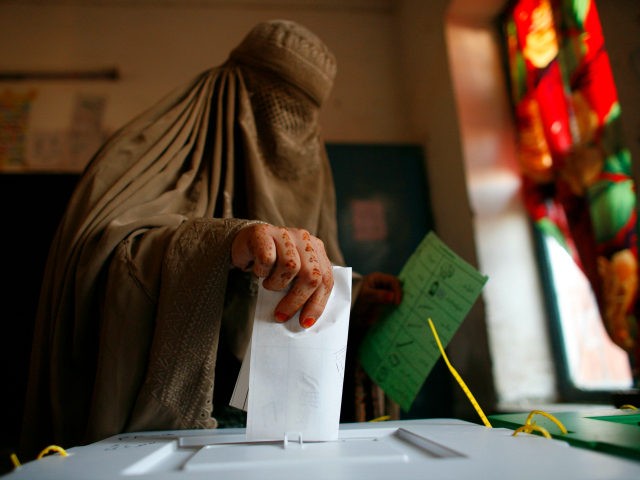Political leaders in nuclear-armed Pakistan, often considered to be allied with the powerful military establishment, are beginning to feel the ramifications of the jihadi candidate surge that entered the general elections, increasingly facing terrorist threats ahead of the contest, Dawn reports Tuesday.
“The political leadership of the country is facing terrorism threats ahead of general elections, an official from the National Counter Terrorism Authority (Nacta) told the Senate Standing Committee on Interior on Tuesday. There were reports of 12 threats, six of which were posed towards certain personalities, the official informed the committee,” Dawn notes.
The military establishment’s efforts to prevent the “political mainstreaming” of more than 265 candidates linked to Islamic terrorist groups, including prominent jihadi organizations like the U.S.-designated terrorist groups Lashkar-e-Taiba (LeT) and Lashkar-i -Hangvi (LJ), have proven to be futile.
Pakistan’s 2018 elections are blossoming into a springboard for Islamist radicals and alleged military establishment-linked criminals accused of murder and rape.
With campaigns already underway, the July 25 general elections are already marred by sharp ideological differences, seemingly pitting hundreds of pro-military establishment candidates accused of heinous crimes against contenders affiliated with jihadi organizations seeking to ensure sharia law is strictly carried to the detriment of non-Muslim religious minorities like Christians.
To circumvent the authority of Pakistan’s Election Commission, jihadi political parties are fielding candidates under obscure political groups that have already been approved by the body.
Having lost the support of the military establishment, it appears the ruling Pakistan Muslim League-Nawaz (PML-N) party is turning a blind eye to jihadis flooding the ballots.
Last week, Islamabad reportedly removed Muhammad Ahmed Ludhianvi, the leader of one of the nation’s most prominent jihadi groups from its terrorist, a move that may allow his LJ-linked group to join other Islamist radical organizations in fielding candidates in the upcoming election.
It appears the military establishment, long considered to run the country, is prepared to fight to keep its power.
The New York Times (NYT) reported on June 6:
Just a month and a half away from national elections, Pakistan’s powerful military establishment has mounted a fearsome campaign against its critics in the news media, on social networks, and in mainstream political movements.
It is all adding up: journalists abducted or threatened, major news outlets blocked, sympathetic views toward the civilian governing party, the Pakistan Muslim League-Nawaz, censored or punished.
“They want to control the narrative. … And to a large extent, they are succeeding,” Zaffar Abbas, the editor of Pakistan’s Dawn newspaper, told NYT without saying who “they” were.
Pakistan’s military establishment is reportedly mulling backing the PTI party leader, cricket star-turned-politician Imran Khan as the country’s next prime minister, abandoning ousted Prime Minister Nawaz Sharif’s ruling PML-N party.
This year, Pakistanis will have to choose mainly between jihadi-linked candidates or military establishment contenders, including 2,720 candidates charged with crimes ranging from corruption and rape to human smuggling and murder.

COMMENTS
Please let us know if you're having issues with commenting.